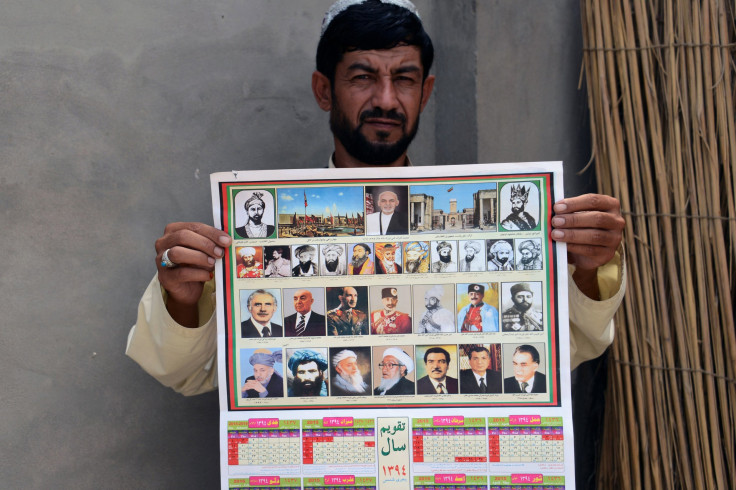Taliban Leader Mullah Omar's Son Dismisses Rumors About Father's Death, Says He Died Of Natural Causes In Afghanistan

As the Afghan Taliban deals with a leadership crisis, the eldest son of deceased leader Mullah Mohammed Omar said Sunday night in an audio tape that his father died of natural causes, refuting speculation that the reclusive chief was killed by his enemies. The tape was verified by Taliban sources, according to reports Monday.
“We have information regarding my father’s treatment as he suffered from some disease. As my father is no more in the world and we have already suffered through the shock of his death, I want to assure you that no one has any involvement in his death,” Mullah Muhammad Yaqoub said, according to the Express Tribune.
"We made enquiries from the doctors, it seems he was suffering from HCV (Hepatitis C),” the 27-year-old added, according to Reuters. “He stayed in Afghanistan even after the U.S.-led invasion of Afghanistan. He died there and was laid to rest there."
Mansoor Dadullah, a senior Taliban commander and an opponent of the new Taliban chief, Mullah Akhtar Mansoor, had alleged that Omar was killed. Mullah Najibullah, who leads a splinter Taliban group Fidai Mahaz, also claimed that Omar was “poisoned,” the Express Tribune reported.
The Taliban officially confirmed Omar’s death in July, admitting that the group had covered up the leader’s death for over two years. The news created a power vacuum within the Taliban, splitting it into two factions.
“Several key members of the supreme leading council of the Islamic Emirate and authentic religious scholars together decided on concealing the tragic news [of Mullah Omar’s death],” the Taliban said, in a statement, providing the date of Omar’s death as April 23, 2013.
The statement was accompanied by a biography of the new leader Mansoor, a longtime deputy of Omar. However, Mansoor’s appointment has faced opposition from many commanders and Omar’s family, including his brother Mullah Abdul Manan Hotak and Yaqoub, who alleged that the Taliban Supreme Council (Shura) was not consulted in the decision.
The Taliban, on its part, has countered these accusations in Mansoor’s 5,000-word biography. “[Mansoor] never nominated himself for leadership rather he was selected as the only candidate for leadership in the very first meeting by members of leading council of the Islamic Emirate and religious scholars,” according to the biography. “It can confidently be proclaimed that his appointment took place in full compliance with Islamic Shariah law.”
In his first public audio statement, Yaqoub dismissed claims that his father appointed a successor. "He had not appointed any one as his successor," Yaqoub said, according to Reuters.
He also called for unity in the group as the ongoing internal power struggle threatens to disrupt peace talks with the Afghan government, and potentially strengthen the influence of the rival Islamic State group. Some militias affiliated to the Taliban have already reportedly pledged allegiance to ISIS, which dominates in Iraq and Syria, and has succeeded in converting Muslims around the world to its cause.
© Copyright IBTimes 2024. All rights reserved.





















